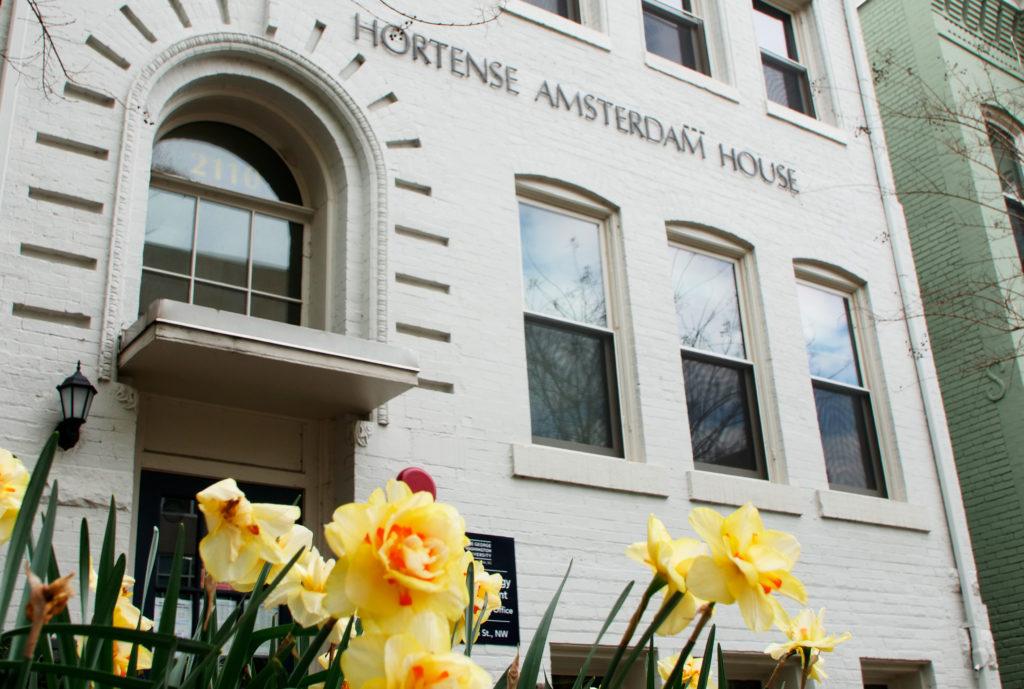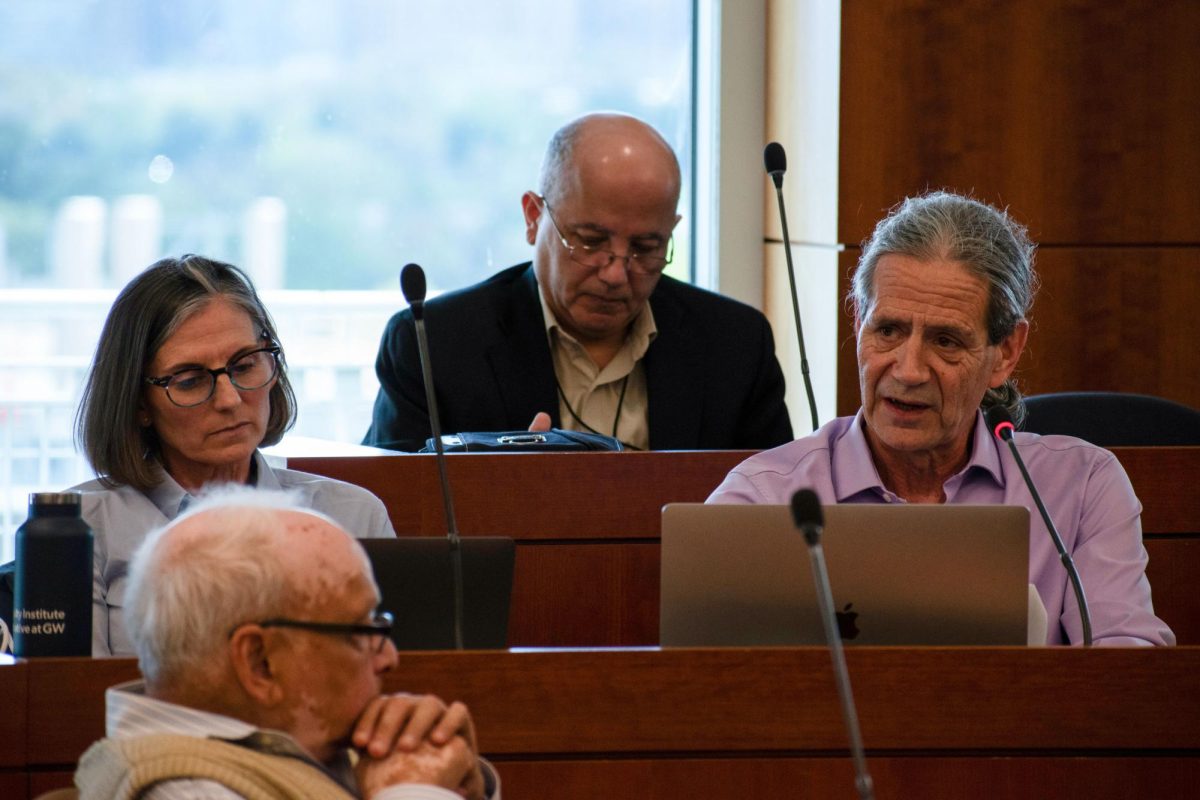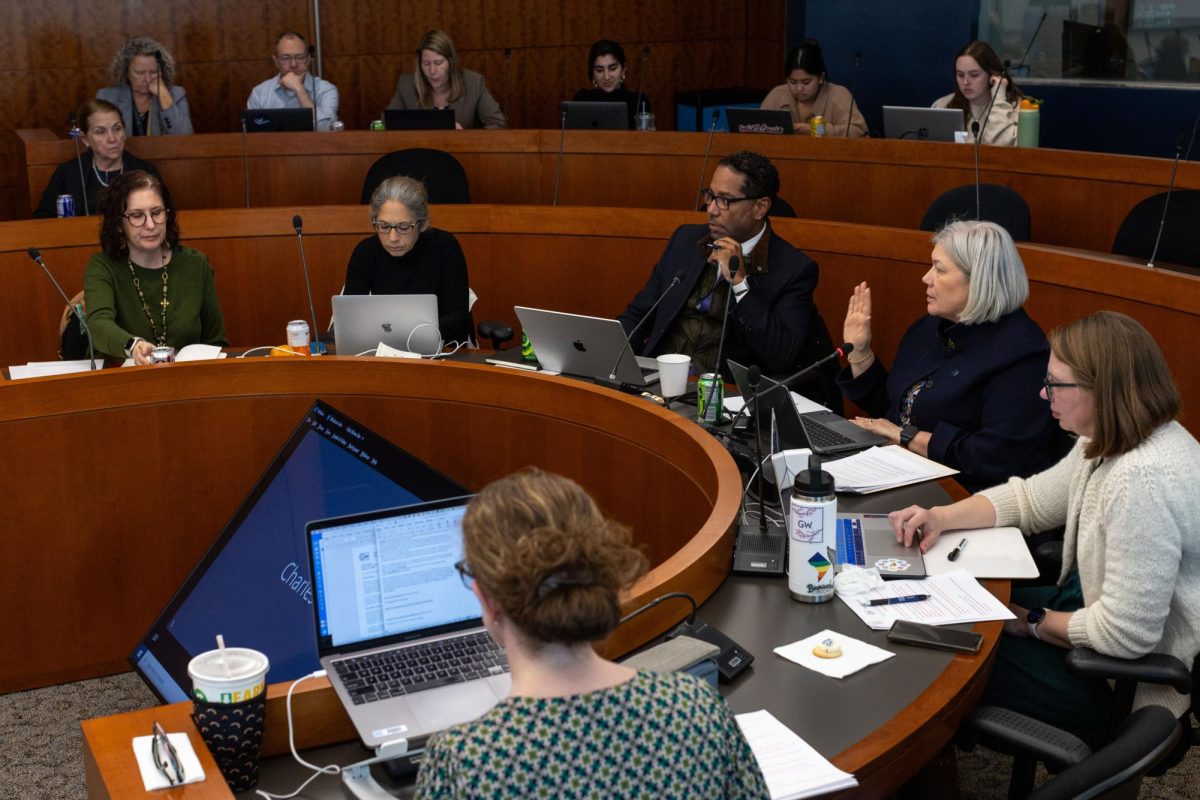Nearly one year after an anonymous complaint of harassment and bias was filed in the anthropology department, officials have yet to disclose recent feedback from students, faculty and staff regarding culture in the department.
An unknown number of current and former graduate students in the anthropology department filed a confidential complaint with the Columbian College of Arts and Sciences last July, driving officials to assess department culture through an inquiry and a survey that officials distributed to graduate students, faculty and staff. Faculty and students in the department said CCAS officials haven’t shared any updates about the survey’s findings, which could help direct ongoing department initiatives on diversity, equity and inclusion once released.
Alexander Dent, the chair of the anthropology department, said the department hasn’t received the results of the survey and inquiry that were conducted in the complaint’s aftermath. He said CCAS officials conducted the culture survey to assess feelings about diversity, equity and inclusion in the department.
“I’m looking forward to hearing the results of the culture survey and incorporating any findings into the work we are doing,” he said in an email. “We have lots of work to do as a department, and GW has lots of work to do as an institution.”
He said CCAS Dean Paul Wahlbeck encouraged the department to keep working on already established initiatives – like the department’s Diversity, Equity, Inclusion Task Force that formed last fall – to address diversity, equity and inclusion concerns until the survey findings are released. He said other departmental initiatives include syllabi transformation workshops and the development of the new governance model for biological anthropology faculty.
Dent said these recent initiatives led by faculty and students are unrelated to the complaint and have been in the works for some time, but the dean’s office has “affirmed” that the initiatives are consistent with the “needs” expressed in the survey. He said learning about the survey’s findings will help guide the department’s future actions, particularly those of the task force.
“We have always been clear that the results of the survey will deeply inform the work of the Task Force that is already under way and may result in actions we have not yet anticipated,” he said in an email last October.
University spokesperson Crystal Nosal said CCAS officials have taken addressing concerns from current and former anthropology students “very seriously.”
She said CCAS officials worked with the department on initiatives like the task force to provide anthropology students and faculty a more positive and inclusive environment for graduate education, research and mentoring.
“CCAS has supported and continues to encourage these initiatives, as well as the ongoing endeavors of our colleagues in the Office of Diversity, Equity and Community Engagement to create spaces for BIPOC students to share their concerns about the department as part of our ongoing assessment and future planning,” she said.
Nosal declined to provide any information about the complaint or updates on the survey results.
Rachel Nelson, a second-year doctoral student who serves on the task force, said it’s “frustrating” that CCAS officials have yet to release any further information about the survey results.
Nelson said the task force has created subcommittees to address aspects like undergraduate management and graduate admissions to make the department as diverse, equitable and inclusive as possible, since CCAS officials have not acted.
“I think there are a lot of things that should be and can be changed within our department, and we’re working on it and we are taking steps to make sure that we can have a lasting impact,” she said.
Kai Blevins, a first-year doctoral anthropology student who also serves on the task force, said task force members hoped to hear back from CCAS officials by the end of last semester, and the lack of updates has been “disappointing.”
“We are just trying to work on things internally as much as we can and also create other collaborations within the University with other student groups and faculty groups to make changes because we’re just tired of waiting for the University to do something,” they said.
Experts in anthropology said university administrators should always promptly respond to and address student complaints against concerns regarding department culture, but the proper method to handle cases can differ between universities and the nature of the complaint.
Clark Barrett, a professor of anthropology at the UCLA, said transparency is necessary in all aspects of academic life, and universities can’t satisfy their educational purpose when injustices like complaints of bias and harassment exist.
“We know that many times when people in universities or companies or government agencies misbehave, they end up not being made public,” he said. “I think that for society in general wrongdoing needs to be not hidden or concealed by structures of power.”
Janet Hoskins, a professor of anthropology and religion at the University of Southern California, said each institution has its own structure and chain of command to follow in handling student complaints. She said any complaints of bias and harassment should “definitely” result in a University investigation, especially for a field with a history and focus like anthropology.
“Anthropology is the discipline most concerned with cultural difference,” she said. “It should be a discipline that is particularly sensitive to issues of harassment and bias, and it should hold itself to the highest ethical standards and address those issues.”








